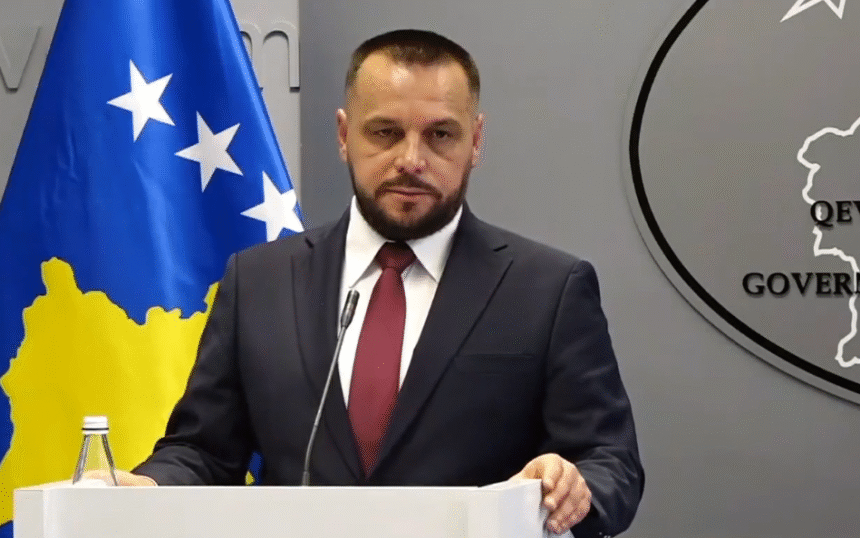Acting Minister of Defense Ejup Maqedonci has discussed current global security developments and their impact on the Balkan region and Kosovo, stressing that the country is adapting its defense strategies to match the rapidly changing international environment.
Maqedonci emphasized that the world is facing one of the most complex security periods since World War II, marked by major strategic shifts and emerging actors challenging the global security order.
“We’ve witnessed Russia’s invasion of Ukraine, ongoing tensions and wars in the Middle East, and increasingly aggressive postures by various states worldwide. This has created a new environment of insecurity, forcing every country to redefine its approach to global changes,” Maqedonci stated.
He also pointed to Russia’s influence in the Balkans, highlighting its attempts to interfere in the region’s Euro-Atlantic integration through Serbia.
“Serbia shares not only historic and cultural ties with Russia but also mutual interests in undermining Western integration processes in the Western Balkans. This approach generates tension and poses risks to regional stability,” he added.
Maqedonci praised the Kosovo Intelligence Agency (AKI) for its role in uncovering and neutralizing espionage networks aimed at destabilizing Kosovo.
“The AKI has done an outstanding job in dismantling spy networks serving foreign interests. We have arrested agents involved in sensitive security threats,” he noted.
The minister said Kosovo is also modernizing its defense capabilities, including the acquisition of combat drones, as part of a broader strategy to adapt to global technological shifts.
“Kosovo is building modern capacities to face new security challenges. The addition of combat drones is a key component of this strategy,” Maqedonci explained.
He reminded that last year Kosovo approved a new “Comprehensive Defense” concept, aimed at engaging citizens in national defense through voluntary participation.
“This model allows citizens to actively contribute to national defense and prepares future generations to be part of our security system,” he underlined.
Maqedonci announced that the Kosovo Security Force (KSF) has completed the validation of its Third National Regiment, marking the final stage in validating all national regiments.
“This is an exceptional achievement for Kosovo’s Army, confirming the readiness and professionalism of its combat units,” he said, noting that this milestone opens the path to the next development phase, which includes heavy artillery, air support, anti-tank systems, and other advanced combat capabilities.
He revealed that some of these systems were initially planned for 2028 but have already been procured, and that talks are ongoing with U.S. defense officials and Lockheed Martin for the purchase of Black Hawk helicopters.
Over the past few months, the KSF has received new equipment, including Puma drones from the U.S., armored vehicles, and other classified systems. Maqedonci said that around €400 million has been invested in defense procurement, most through state-to-state agreements.
He also confirmed plans for the creation of a joint military unit between Kosovo and Albania, adding that collaboration with NATO member states continues to deepen.
“With Albania, cooperation is particularly close. Together with Minister Piro Vengo, we have launched key initiatives, including a trilateral defense agreement with Croatia, and plans for joint weapons production and a unified military unit,” Maqedonci stated.
When asked about the formation of the new government, Maqedonci said there are no new developments yet, but expressed confidence that efforts to form Kurti’s third government will continue to ensure the completion of ongoing national defense projects.






